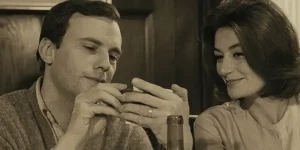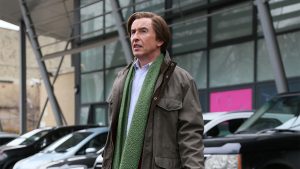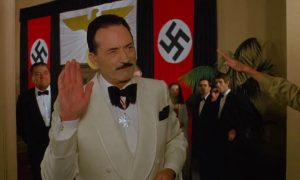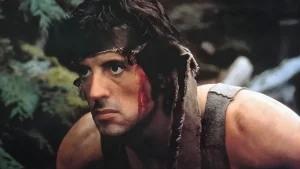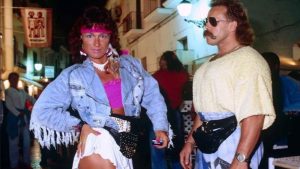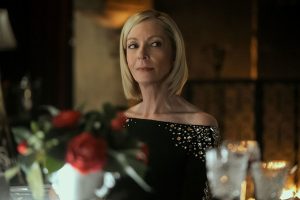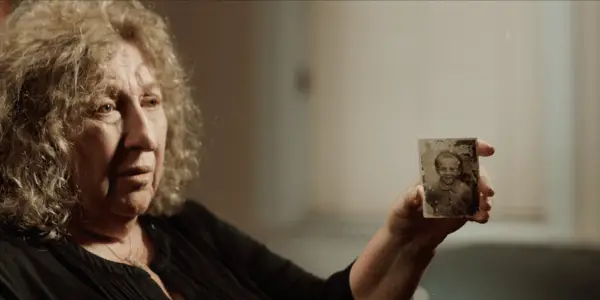
“There was nobody but me who knew as much as I knew, and so I had to tell the story.”
It isn’t uncommon, in the modern world, to hear the harrowing ordeals of those who suffered through the Holocaust. Whether through informative documentaries and books or works of fiction, these horrors are not completely unknown to most people. What might be less familiar, especially to those residing outside the Jewish community or others impacted by these events, are the personal stories, those that can only be told by those who survived or their families to which they passed on their experiences. With Christopher Wells’ newest documentary, Stories For My Children’s Children: Lessons From The Holocaust, he takes the opportunity to give the spotlight to one such descendent who emotionally recalls not just the struggles her parents endured, but the importance of telling these stories for future generations.
A Tale of Unimaginable Struggle, Loss, and Recovery
From her home in Woodmere, Long Island, Sarah Rolnick shares the story of her parents, Genowefa and Roman Putter, their personal journeys of surviving the Holocaust and recovery before finally emigrating to America. With every word, she pulls us into their world as she describes her mother’s account of hiding on a farm in Poland for over two years, or her father being separated from his family in the camp. When her voice fills with emotion, you feel it in your chest as she describes his pain from losing his young son, maybe five years old, whose name Rolnick never learned because she didn’t want to ask and cause him to relive it. All she has now is a single portrait by which to remember him.
source: Kaleidoscope Pictures
After the war, her parents lived in a displaced persons camp for some years, where she was born. In the camp, survivors were taught skills and educated to help them be able to enter the workforce; Roman taught carpentry, Genowefa sewing and clothes-making. In 1949, the family emigrated to the United States, anglicizing their names and beginning life anew. Throughout her adult life, Sarah has accumulated as much information as she can on her family via documentation, photos, any records she could find, leading to a stunning revelation at Oskar Schindler‘s Enamel Factory within the Historical Museum of Kraków. She also visited the Osika family farm, still owned by Stanislaw Osika, Jr., the son of the family who saved her mother and relatives. He has since received many awards, medals, and other commendations for their efforts.
A Story for All Children’s Children
Rolnick ends her story by tearfully proclaiming the importance of telling stories such as these. Being the last of her family that knows this much of the story, she wanted to make this film for future generations to learn from, so they could pass on the stories so that these horrors are never repeated. Not only is this film important for her family to learn about their past, it’s important for us, the audience with no blood relation, to hear these stories. It’s these personal accounts that serve as a reminder of the human element of tragedy and not to look at history in broad strokes of an event.
source: Kaleidoscope Pictures
Clocking in at less than an hour, set the time aside to hear Sarah’s story, told with such grace and a conversational tone that makes you feel right there with her. No word is unnecessary, and every picture, every moment, reinforces the importance of the film’s message. Christopher Wells has done a commendable job bringing this story to the public, and I look forward to seeing more like it.
More information about this film can be found at Kaleidoscope Pictures’ website.
Does content like this matter to you?
Become a Member and support film journalism. Unlock access to all of Film Inquiry`s great articles. Join a community of like-minded readers who are passionate about cinema – get access to our private members Network, give back to independent filmmakers, and more.
